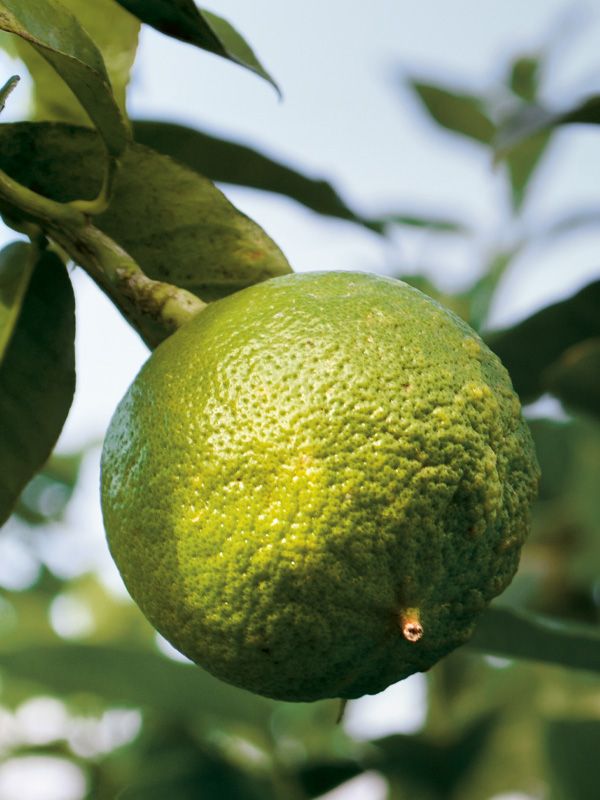As Werner Borgolte opens the wooden crate, only two or three bees are visible. “You little guys are still tired, aren’t you?” says the 75-year-old with a gentle voice. He examines the beehive from all sides and secures a small dispenser to the top. The inconspicuous plastic bottle is incredibly important for the bee colony. “It provides as much formic acid as is needed to kill off the varroa mite,” says the hobby beekeeper. “The parasite was brought over from Asia. When it gets into a colony, it literally sucks the blood out of the bees.” Speaking of the bees, they are becoming more active now. A few dozen are now buzzing around Borgolte. He reaches for his Rauchboy smoker, a silver canister with a brown bellows. The short puffs of smoke have a mellowing effect on the bees. “I’ve been stung before, but it doesn’t happen as often as you’d think.”
It is a warm fall day. Werner Borgolte’s three beehives are kept at a former community garden at the edge of Holzminden. The retiree, who works for a few hours per week at the company-owned property, has already collected all of this year’s honey. The apple trees and blackberry and raspberry bushes have been bare for weeks, and the wild grasses and weeds show a slight droop as winter approaches. Werner Borgolte is now preparing the hives for the cold season, so the colony can once again pollinate the nearby rapeseed fields and orchards in the coming year
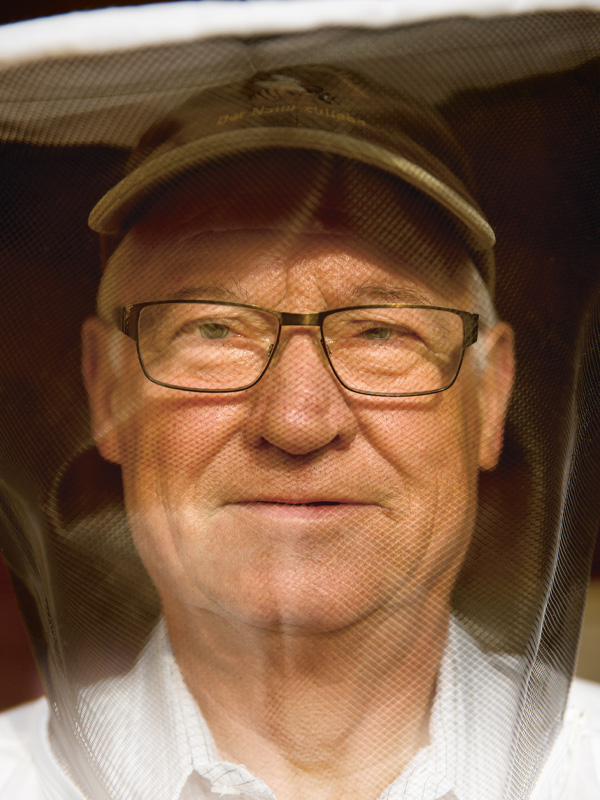
Huge plans
The beekeeper Werner Borgolte (left) looks after the beehives in the former community garden on behalf of Symrise. Additional projects, including research and development, will be carried out at the company-owned property in the future. Factory managers Susanne Ellerbrock and Carsten Schacht, who are responsible for properties among other things at Symrise, have documented and analyzed the premises.
100
Symrise employees leased the gardens following the Second World War.
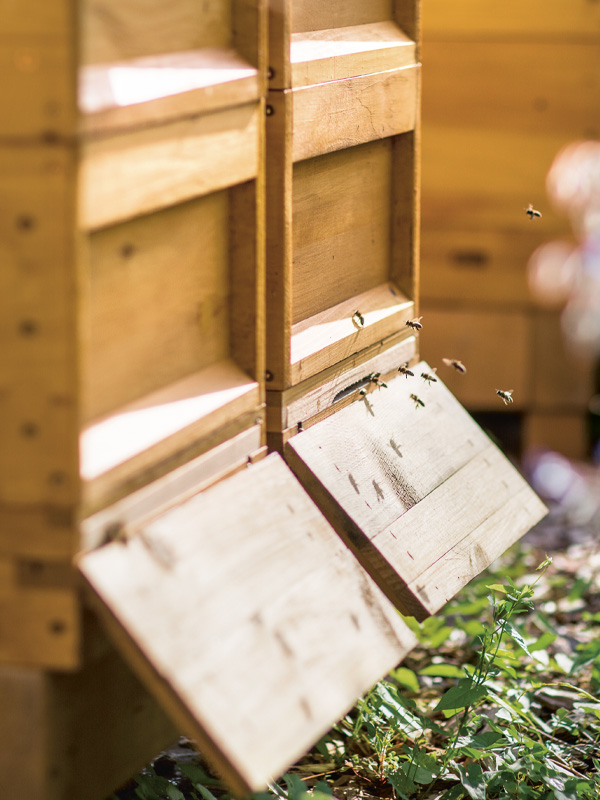
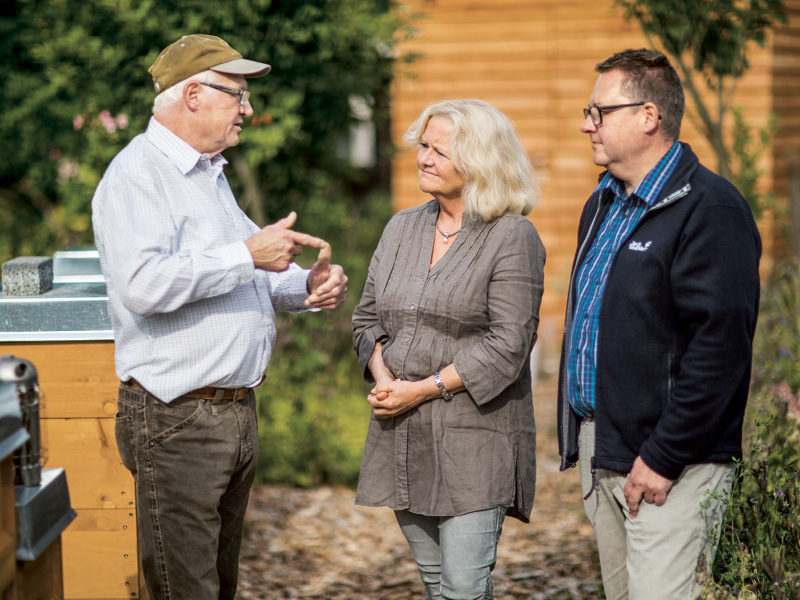
A symbol of biodiversity
Beekeeping is a small project for Symrise when compared to building a new production plant or developing a new, innovative product. But the project is meant to grow. The gardens, which were leased by about 100 employees after the Second World War for growing food, are being examined for their plant diversity. In the future fruits, vegetables and herbs will be grown here, which Symrise can use in research and development or for demonstration purposes.
Likewise, the industrious pollinators in the colorful garden are also a symbol of how Symrise is actively committed to biodiversity. The company has similar projects running at sites in France and the US. Crucial for humankind, biodiversity is in peril. “We have some big challenges ahead,” says Hans Holger Gliewe, Chief Sustainability Officer at Symrise. “Compared to normal evolutionary conditions, species extinction has accelerated by a factor of 1,000.” One reason for this is that biodiversity was a long-overlooked topic in contrast to other sustainability objectives. “This is due in part to the complexity of the topic,” explains Gliewe. “It concerns the diversity of the gene pool, of species and ecosystems as well as ecological benefits and functions that are not easy to understand – and they are connected in intricate ways.”
Broad awareness for the topic developed toward the end of the 2000s. A series of international studies by the German government and the United Nations showed that the focus shouldn’t just be on nature, but also on its economic importance. “Pollination by bees has an economic impact of about € 150 billion per year worldwide,” says Hans Holger Gliewe.
Pollination by bees has an economic impact of about € 150 billion per year worldwide.Hans Holger Gliewe, Chief Sustainability Officer at Symrise
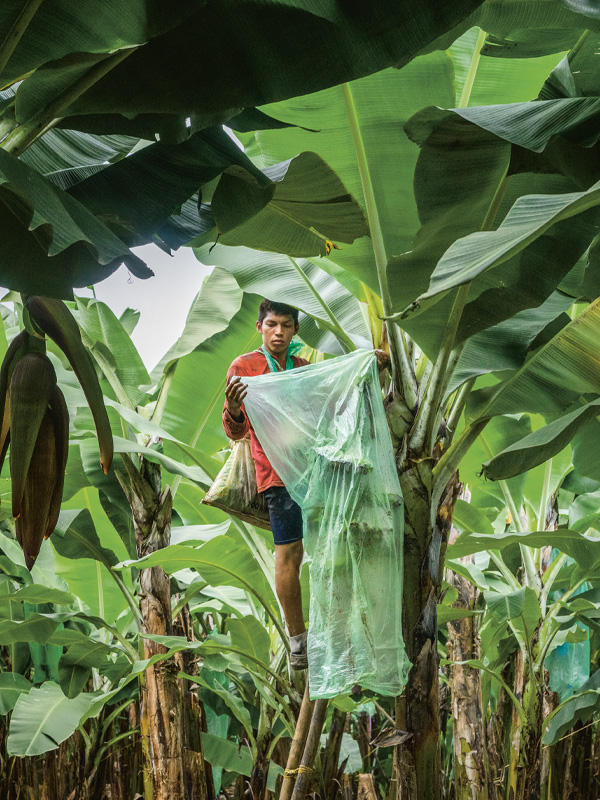
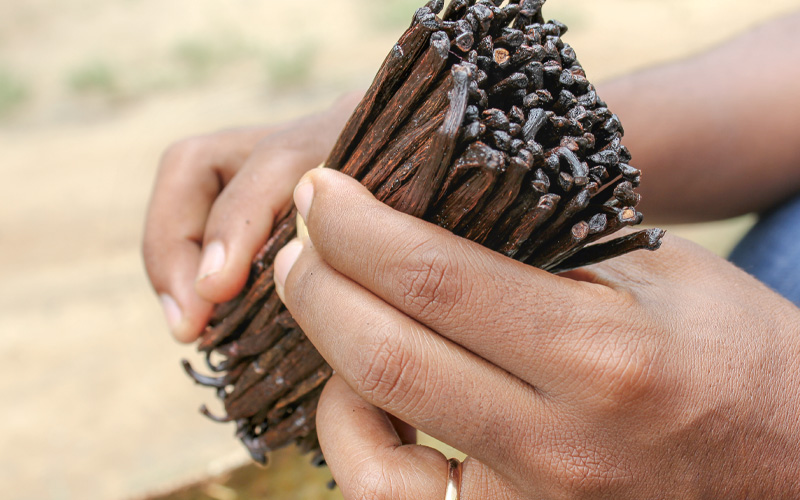
Raw materials around the world
Seeds from Brazil, vanilla from Madagascar, bananas from Ecuador: Symrise sources its most important raw materials from all continents. And the company doesn’t just purchase fruits, vegetables, nuts and herbs from growers or through large-scale wholesale traders but more and more frequently also uses backward integration for raw materials in its own value chain.
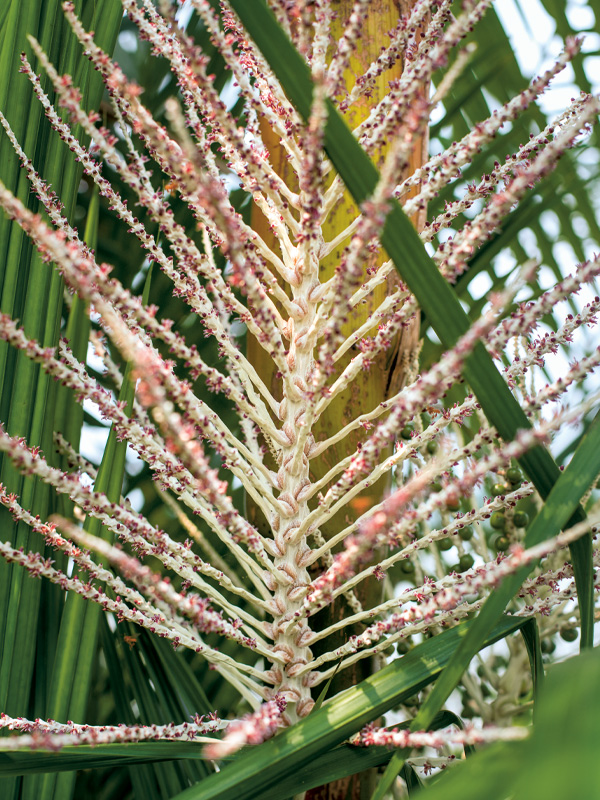
Our own biodiversity agenda
As an initial reaction to the impending loss of diversity, Symrise commissioned a biodiversity check together with the international foundation Global Nature Fund in 2010. The goal was to evaluate the impact of declining biodiversity on the company with a focus on strategically important raw materials. “Our more than 10,000 raw materials come from all over the world. We depend on nature more than most companies,” explains Gliewe. The result of the check was clear. “Without a precise analysis of our strategic supply chain and adaptations to make it more sustainable, we would see a strong impact from the decline in biodiversity.”
Together with the Global Nature Fund and the nonprofit organization Union for Ethical BioTrade (UEBT), Symrise developed a biodiversity agenda. It has a major influence on the Group’s strategic actions – for instance, when it comes to acquiring other companies or optimizing processes. “The protection and sustainable use of biodiversity is at the top of the agenda together with the careful selection and production of raw materials,” says Hans Holger Gliewe. “Similarly, the people that live in the regions in question should be fairly involved in the value creation process. We want to create incentives for preserving species and ecosystems.”
Protecting endangered species starts with purchasing
Another area that plays an important role is purchasing. The company uses backward integration for key raw materials in its own value chain and improves conditions with the growers. Some examples include Symrise’s activities in Ecuador (see page 36), Madagascar (see page 54) and the Amazon region in Brazil, where the company had several dozen raw materials certified by the UEBT and developed social projects for the farmers.
Symrise has also defined a Group-wide goal. The company wants to purchase 100 % of its key raw materials from sources that use sustainable practices by 2020. “This includes materials like onions, vanilla or citrus products that are major purchase items and represent the lion’s share of our natural raw materials ,” says Mark Birch, Director of Purchasing Sustainability at Symrise. Also important for the company are raw materials used in smaller volumes in strategically important products or specialty materials that are needed for certain customers.
To carry out these sustainability activities in the best possible manner, Symrise joined the Sustainable Agriculture Initiative (SAI) Platform, among others organizations. 90 of the world’s most important food manufacturers and suppliers have joined this platform. “Together, we want to support sustainable agriculture. The farmers we work with should fulfill certain criteria regarding water and land use, fertilization and pest control,” explains Birch, a relative newcomer to Symrise who spent the previous 29 years at a food corporation where he was responsible for sustainable sourcing and supplier development, among other things. Furthermore, the harvests and therefore the prosperity and security of the farmers and workers should increase around the world. “Sustainability always includes social components.”
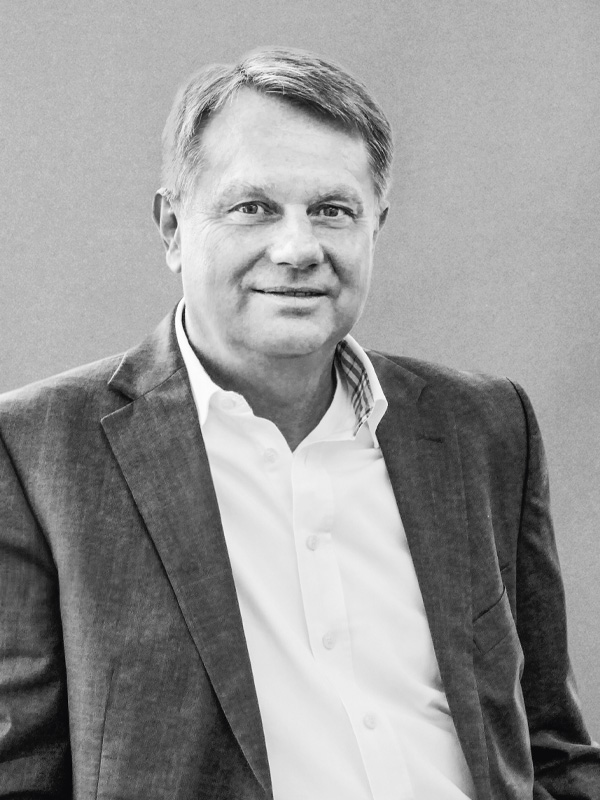
“The protection and sustainable use of biodiversity is at the top of the agenda together with the careful selection and production of raw materials.”
Hans Holger Gliewe
Chief Sustainability Officer at Symrise
“We’re looking for partners who share our ideas about sustainability.”
Mark Birch
Director of Purchasing Sustainability at Symrise
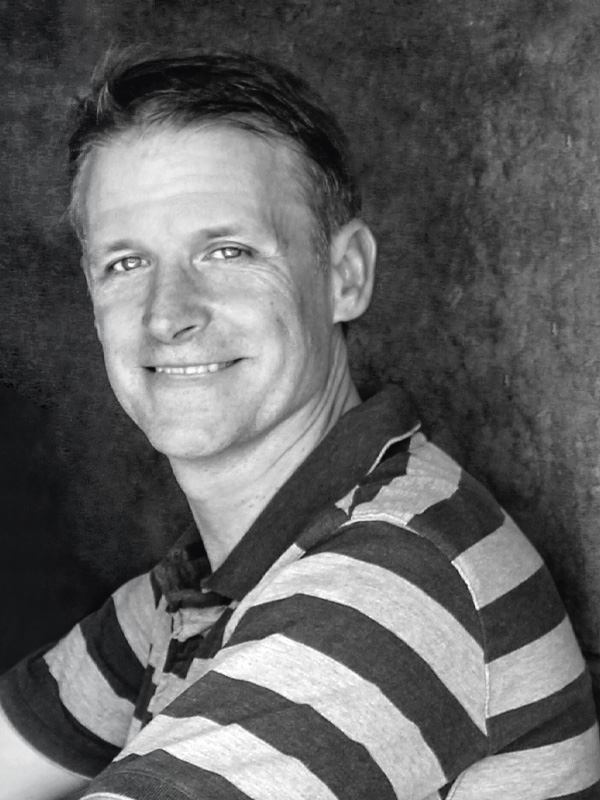
Sustainable purchasing
Mark Birch has ambitious goals: Working with his colleagues, the Director of Purchasing Sustainability at Symrise wants to ensure that the company obtains 100 % of its most important raw materials from sustainable sources by 2020. And he can draw on plenty of experience. Birch was responsible for sustainable purchasing, among other things, at a large food corporation for 29 years.
Strict standards for agriculture
The SAI developed criteria based on sustainable agricultural practices and an easy-to-use evaluation tool, the “Farm Sustainability Assessment.” It allows the companies involved to directly compare suppliers all the way down to the individual growers in a simple and independent way. Furthermore, farmers who have already been verified are listed with their products in the database. “This creates a network of sustainable growers that the members of the platform can work with.”
Here in Germany, Symrise used the Farm Sustainability Assessment with its onion farmers, for instance. “We looked at production and farming practices together and then collected the data.” The company is using this approach for assessing and qualifying the sustainability of raw materials. This method also satisfies the sustainable agriculture requirements of key customers, such as food corporations that buy onion juice concentrate. Symrise intentionally placed responsibility for this with the Purchasing team. “Those who work with the suppliers on a daily basis have the best overview,” says Birch, who is also responsible for purchasing tea at Symrise.
Whether it will ever be possible to purchase all raw materials according to these strict standards is a difficult question according to Birch. Of the roughly 10,000 materials, many of them are bought in very small quantities – such as certain nuts, barks or herbs. Some raw materials are harvested in forests, collected by cooperatives and then sold to Symrise in very small volumes (ten to 50 kilograms per year) via a network of traders. “In such cases, we have limited leverage,” says Birch. “We do, however, try to partner with like-minded organizations that share our sustainability ideals. In doing so, we pave the way for an increasingly responsible handling of biodiversity and our natural resources.”
Sustainability from the start
Bergamot represents one example of the company’s commitment to biodiversity and sustainable purchasing. The citrus plant is grown in the Calabria region of Southern Italy. Its oils are used in perfumes and give Earl Grey tea its distinct citrus note. Symrise cooperates closely with the company Capua 1880, which has been producing bergamot oils for five generations. The family-owned company processes more than half of the entire harvest in the region, which accounts for four-fifths of global production.
Other partners include the University of Calabria, the Unionberg Association and the Union for Ethical BioTrade (UEBT). Together, they invest in research and development regarding issues like the more efficient use of production by products – such as flavors from the previously unused juice and the oils in the fruit rinds, which can be extracted via innovative technologies. Furthermore, Symrise and its network partners in Calabria are working with 500 growers in the region to make their farming more sustainable.
An important component of their commitment is the protection of biodiversity. The parties develop standards for procuring and using raw materials in a way that promotes local diversity. For example, bergamot is grown relatively close to the Mediterranean and Ionian coasts. Symrise and its partners want to find out what impact this has on the local marine life. This allows them to protect living beings on land and in the sea.
